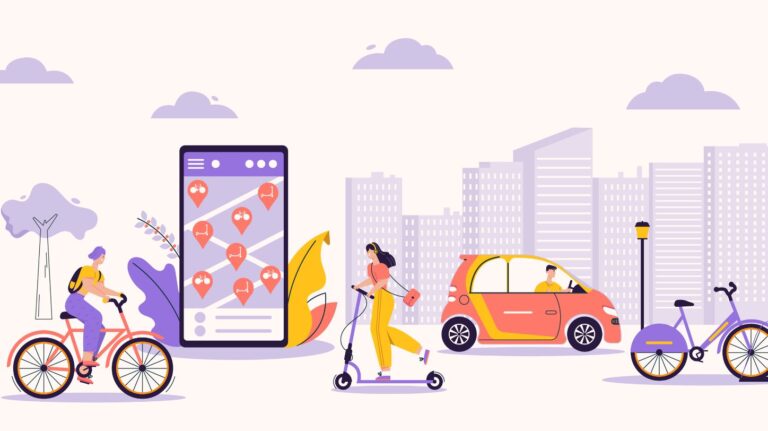The UK Department for Transport (DfT) has published its code of practice for Mobility-as-a-Service (MaaS), encouraging app providers to utilise the technology.
The government’s code of practice for MaaS app developers and companies aims to ensure they offer more streamlined journeys for travellers and commuters while ensuring the technology is accessible to all.
The guidance encourages app platform providers to consider accessibility needs when suggesting routes, including outlining wheelchair-accessible routes and stations and providing step-free options for all journeys.
MaaS technology is already in use in apps such as Citymapper and Google Maps and aims to bring together data, such as timetabling or ticket prices, from multiple sources of transport to offer efficient choices to travellers.
READ MORE: How a MaaS app is persuading people in the Italian city of Genoa to leave their cars at home
The government guidance also recommends that app providers consider the personal safety of app users when suggesting routes. For example, apps should allow people to choose “main roads only” options for journeys, keeping to well-lit roads. Apps should also be able to share their live location with a contact while on the move.
Jesse Norman, UK minister of technology and decarbonisation, said: “With the new code of practice, the DfT is encouraging app providers to make the most of the new technology, helping to ensure potentially vulnerable groups and communities are not left behind.”
Further recommendations include ensuring apps consider users in rural areas where internet connectivity could make accessing online journey planning difficult. As part of this, platforms are encouraged to include offline options, such as a phone number for ordering taxis or claiming compensation for delays.
READ MORE: What role could MaaS play in the future of UK transport services?
Examples of MaaS platform operators currently operating in the UK include Swift in the West Midlands, where Swift cards can be used as a ticket for train, bus or tram services, as well as car parking and season tickets. The scheme – reportedly the largest outside London – has 190,000 active smartcard holders.
In 2020, the DfT awarded funding to Solent Transport as part of its Future Transport Zones programme to develop a transport app for the region. The Breeze app enables users on the British south coast to plan, book and pay for all journeys, including public transport, cycling, e-scooters and ferries. It also provides information about how busy services are and suggests the most environmentally sustainable way to travel.
Innovations and achievements in MaaS techology will be highlighted and celebrated at the second annual CiTTi Awards on 21 November 2023 at the De Vere Grand Connaught Rooms in London. Visit www.cittiawards.co.uk to learn more about this unmissable event for the UK’s transportation sector – and to book your table today!





